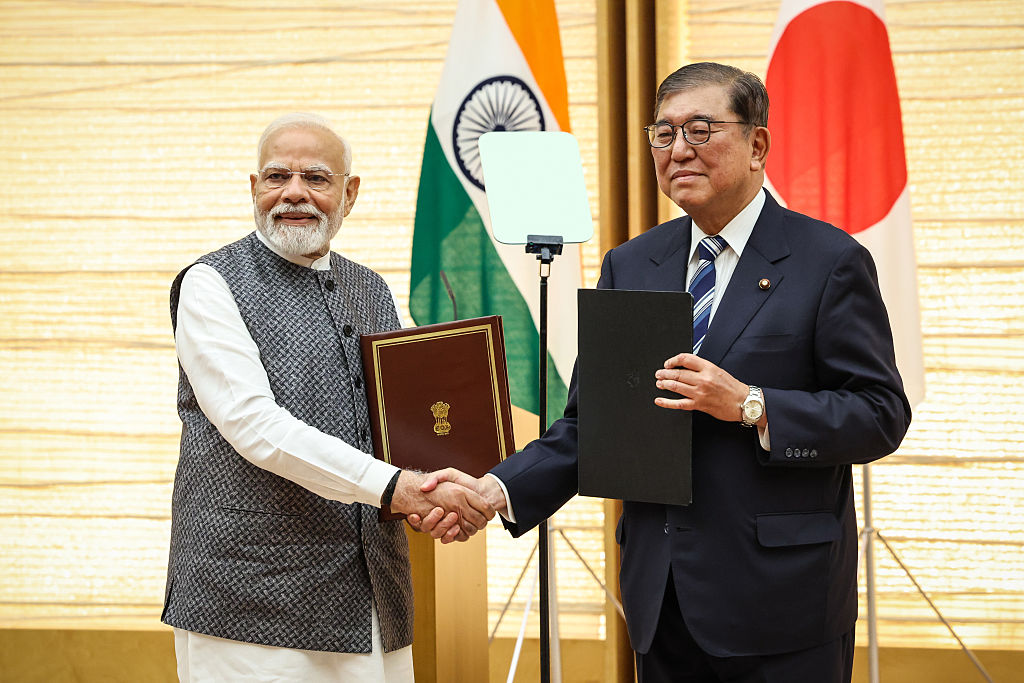India and Japan have taken major strides in strengthening their Special Strategic and Global Partnership with a renewed emphasis on economic security, covering critical sectors from semiconductors and clean energy to critical minerals, information technology and pharmaceuticals.
During Prime Minister Narendra Modi’s ongoing visit to Tokyo, both countries reiterated that their partnership, rooted in shared values and mutual respect, is central to advancing regional and global prosperity. The two democracies underscored their intent to accelerate collaboration in critical and emerging technologies, supply chain resilience, and innovation-led growth.
The two governments launched the India-Japan Dialogue on Economic Security, which has been elevated into a comprehensive framework for cooperation in strategic trade and technology. The dialogue aims to address economic interlinkages that carry security implications and strengthen resilience in areas such as semiconductors, clean energy, pharmaceuticals, and information and communication technology. A parallel private sector track has also been launched between Keidanren and the Confederation of Indian Industry to advance cooperation in strategic industries.
In the field of semiconductors, the Ministry of Electronics and Information Technology of India and Japan’s Ministry of Economy, Trade and Industry signed a cooperation pact that has already led to concrete projects. These include Japanese semiconductor major Renesas Electronics partnering with CG Power to set up an OSAT facility in Gujarat, collaborations with IIT Hyderabad and the Centre for Development of Advanced Computing under the Chips to Startup programme, and a strategic tie-up between Tokyo Electron and Tata Electronics to strengthen India’s semiconductor ecosystem. Japan has also extended yen loan support for Tamil Nadu’s investment promotion programme, which will fund start-ups in emerging technologies including semiconductors.
The mineral resources sector witnessed a boost with the signing of a new memorandum of cooperation in August 2025. The agreement expands collaboration on rare earths and critical minerals, building on projects such as Toyota Tsusho’s refining initiative in Andhra Pradesh. Both countries are also coordinating through multilateral frameworks like the Mineral Security Partnership and Quad Critical Minerals Initiatives.
Cooperation in information and communication technology has gathered pace with joint efforts in 5G and Open RAN systems, with NEC and Reliance Jio partnering in infrastructure development. Japan’s Ministry of Internal Affairs and Communication has supported an Open RAN pilot in India, while NEC’s Centre of Excellence Laboratory in Chennai continues to drive R&D in advanced communications. Expansion of NTT’s data centre footprint in India is also being backed by Japanese investment institutions.
Clean energy has emerged as another focal point. India and Japan have signed a memorandum on the Joint Crediting Mechanism and a declaration on clean hydrogen and ammonia. Collaborative projects include ammonia co-firing at Adani Power’s Mundra plant and a JBIC-Osaka Gas partnership with Clean Max to operate a 400MW renewable portfolio. The two sides are also working on battery supply chains and biofuel initiatives, supported by fresh lines of credit and investments in green projects such as bamboo-based ethanol in Assam.
Scientific collaboration has been elevated with the current year designated as the Year of Science, Technology and Innovation Exchanges. India and Japan are advancing cooperation in artificial intelligence, quantum technologies, biotechnology, climate change solutions and space. The two sides have launched the India-Japan AI Cooperation Initiative, signed a renewed MoU on Digital Partnership 2.0, and stepped up academic and research exchanges through programmes like LOTUS and Sakura Science. A major private sector boost has come with NTT Data and Neysa Networks committing to a large AI data centre cluster in Hyderabad.
Pharmaceutical cooperation is being advanced through agreements between regulatory and research agencies, alongside new collaborative frameworks under Japan’s Strategic International Collaborative Research Programme. The two countries are working together to build a resilient biopharmaceutical supply chain, with JBIC extending financing to Japanese firms active in India’s pharmaceutical and chemical industries.














